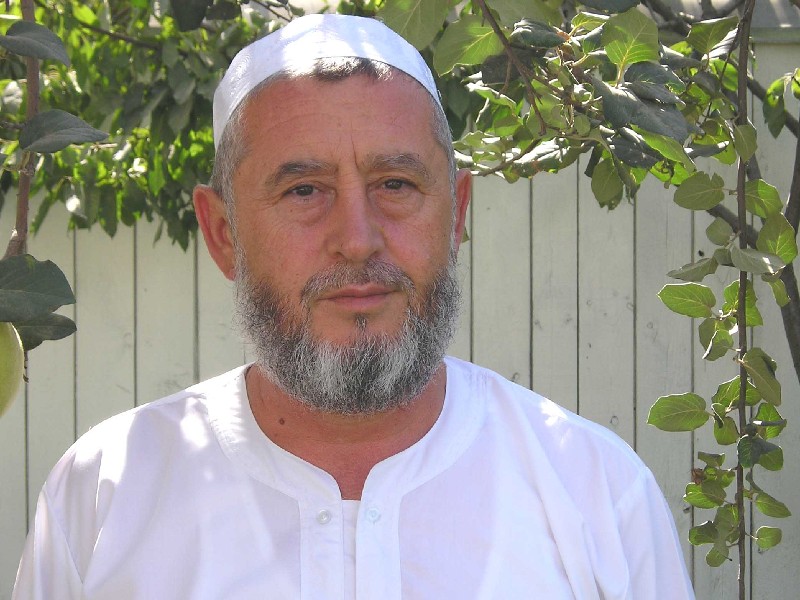
Prominent Cleric and His Brothers Face Growing Pressure in Tajikistan
Publication: Eurasia Daily Monitor Volume: 9 Issue: 4
By:

Prominent Tajik religious and political figure, Hoji Akbar Turajonzoda, and his brothers, Nuriddin and Muhammadjon, have, in recent weeks, come under increasing pressure from the authorities. On December 6, 2011, the Council of Ulamo (CoU), a government-controlled body regulating Islamic activities in the country, accused the Turajonzoda brothers of observing the holiday of Ashura, which has a special significance for Shia Muslims. The holiday is not observed in Tajikistan where the majority of people are Sunni Muslims of the Hanafi tradition.
The CoU’s statement alleged that on December 2, Nuriddin and Muhammadjon performed the Ashura ritual at the Muhammadiya Mosque. The mosque in the village of Turkobod, some 30 kilometers east of the Tajik capital Dushanbe, is one of the largest in the country. It belongs to the Turajonzoda family. Muhammadjon Turajonzoda served as the mosque’s imam after the elder brother, Nuriddin, had been forced by the authorities to resign in January 2011 (EDM, March 3, 2011).
“We are surprised that the ritual [of Ashura] was performed by members of the prominent religious family of Turajonzoda who claim to belong to the Hanafi school of Sunni Islam,” the statement said, adding “This ritual is entirely in contradiction to the Hanafi tradition… [The] Turajonzoda brothers want to popularize an alien religious practice among our people… We must stay vigilant and protect our faith from various plots; we must not allow hypocritical individuals to endanger the spiritual unity of our nation…” The statement also implied that Turajonzoda brothers were responsible for political confrontation leading up to the civil war in Tajikistan in 1992-1997 (www.khovar.tj, December 9).
Responding to the statement, Hoji Akbar claimed that none of his brothers had observed the holiday of Ashura. The cleric also alleged that the statement attributed to the CoU was invalid because several members of the council had called him and insisted that they had not signed the document. According to Turajonzoda, the statement was part of an effort aimed at “discrediting his family in the eyes of President [Emomali] Rahmon” (www.islamnews.tj, December 7, 9).
Despite these claims, the council distributed the statement among all mosques in the country, requesting that imams read the statement at Friday prayers. Several imams who refused to do so have been replaced by the authorities (www.islamnews.tj, December 27). On December 9, the CoU’s head, Saidmukarram Abduqodirzoda, arrived at the Muhammadiya Mosque to familiarize the worshippers with the statement. The angry crowd at the mosque did not let him speak, and, after provocative statements by Nuriddin and Hoji Akbar, the worshippers demanded that Abduqodirzoda leave the mosque (www.regnum.ru, December 15).
Following the incident, the State Committee for Religious Affairs dismissed Nuriddin and appointed a new imam to the Muhammadiya Mosque. The committee also imposed a three-month ban on Friday prayers at the mosque. A Tajik court later ordered that Nuriddin and Hoji Akbar pay a fine of 350 somoni (about $70) each, allegedly for insulting Abduqodirzoda. The brothers told journalists that they would not appeal the ruling because “it had been made clearly under the pressure from certain government structures” (www.news.tj, December 14, 24). Given that the council’s statement was publicized by the government news agency and the court acted so quickly to impose a fine on the Turajonzoda brothers, there is little doubt that the latest round of pressure against the clerics had been initiated, or at least sanctioned, by the president’s office.
Hoji Akbar Turajonzoda, who had been Tajikistan’s supreme Islamic authority in the final years of Soviet rule, became the second most senior leader of the United Tajik Opposition (UTO) during the civil war. Following the 1997 peace accords, the cleric was appointed First Deputy Prime Minister, apparently in exchange for denouncing the Islamic Revival Party and supporting Emomali Rahmon in the elections. In 2005, Rahmon removed Turajonzoda from the government by making him a senator. Since then, Turajonzoda has heavily criticized the government for curbing religious freedoms in the country. This criticism has cost him his seat in the parliament in 2010. Moreover, government-owned newspapers launched a smear campaign against the cleric, denouncing him as an “enemy” of the country. An arson attack that damaged Turajonzoda’s cotton-processing plant last year was interpreted as an attempt to intimidate the cleric (EDM, November 2, 2011).
Independent experts say these developments risk exacerbating the rift between independently minded Tajik imams and citizens, on the one hand, and state-supported religious leaders, on the other hand. Tajikistan is officially secular, although more than 98 percent of its almost 8 million people are Muslims. Tajik authorities view the growing religiosity of the population as a threat. Hence, any religious expression beyond state-supported spiritual teachings is fervently curbed, ostensibly to prevent extremism. Hundreds of people have been jailed in recent years for membership of banned Islamist groups. At the same time, little is done to address root causes of extremism, including poverty, unemployment, rampant corruption and nepotism. Experts also suggest that the authorities often use the threat of Islamic extremism as a pretext to crack down on its political opponents.




